Naimah Amin Wins 2025 Audain Travel Award
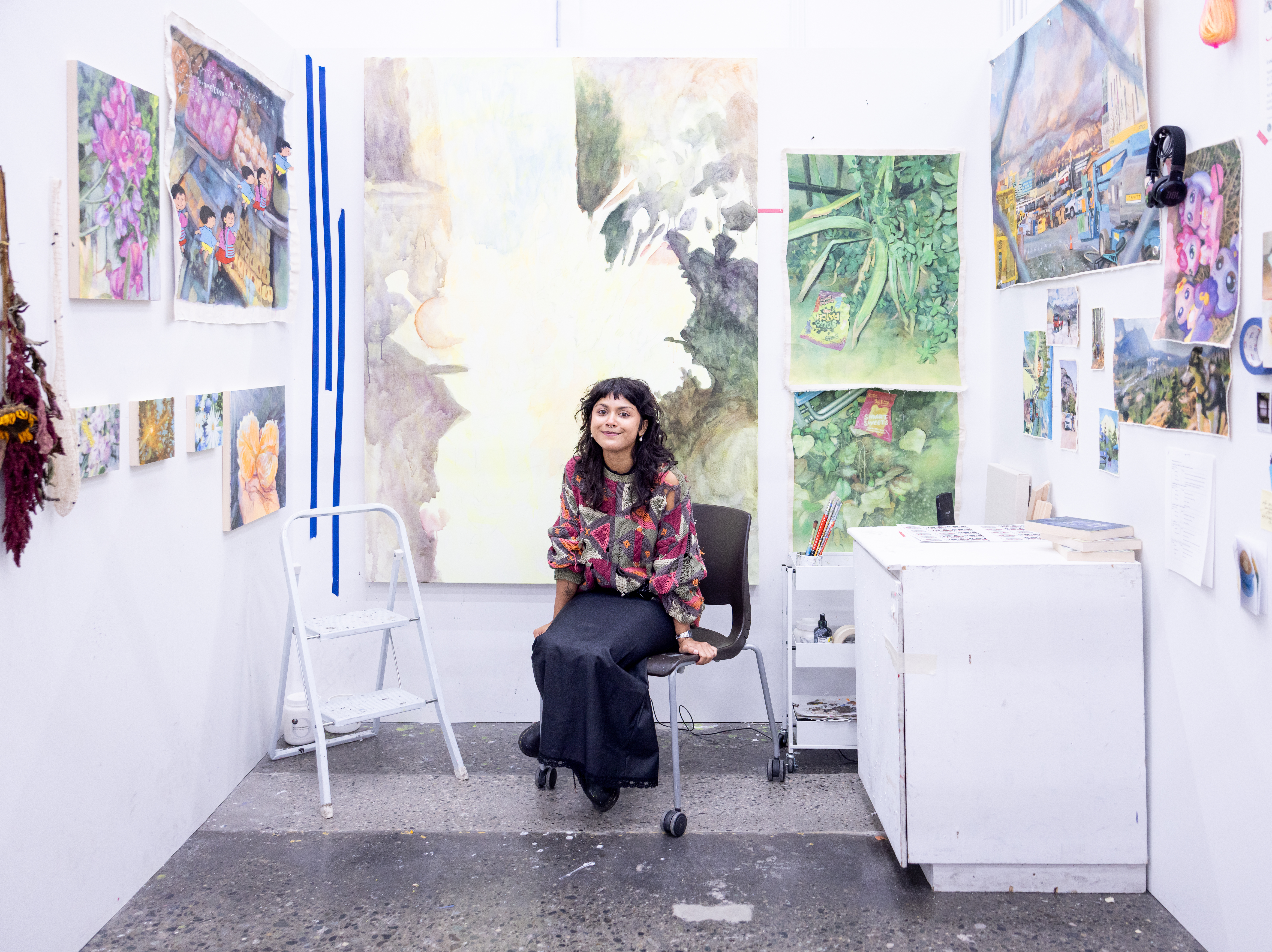
“I do have to question my work constantly and see how my work is in conversation not just with other artists, but also with the times,” says Naimah Amin, pictured here in their studio in the ECU grad student facilities. (Photo by Perrin Grauer)
Posted on | Updated
The artist and ECU Master of Fine Arts student will travel to Bangladesh to research how contemporary and traditional visual practices engage with land, memory and postcolonial identity.
Artist and Emily Carr University of Art + Design (ECU) Master of Fine Arts (MFA) student Naimah Amin (MFA 2026) is the recipient of a 2025 Audain Travel Award.
Naimah, originally from Montreal, will use the award to travel to Bangladesh, where their parents were born.
“I’m very grateful for this award because so much of my painting is rooted in my diasporic identity, in all its complicated layers of tension and tenderness,” they say. “The way I see the world is shaped by the memories and heritage my parents passed down to me—parts of my history that, because of circumstance, I’ve only rarely been able to access directly. This opportunity lets me connect more closely with those influences and see how they continue to shape the way I move through the world.”
Awarded annually to student artists enrolled in a full-time fine-arts program at the undergraduate or graduate level, the prestigious Audain Travel Award provides $7,500 to encourage travel for art experiences. Past recipients include Sun-Nam Manuel (선남) (BFA 2024), Caitlin ffrench (MFA 2023) and Khim Hipol (BFA 2022).
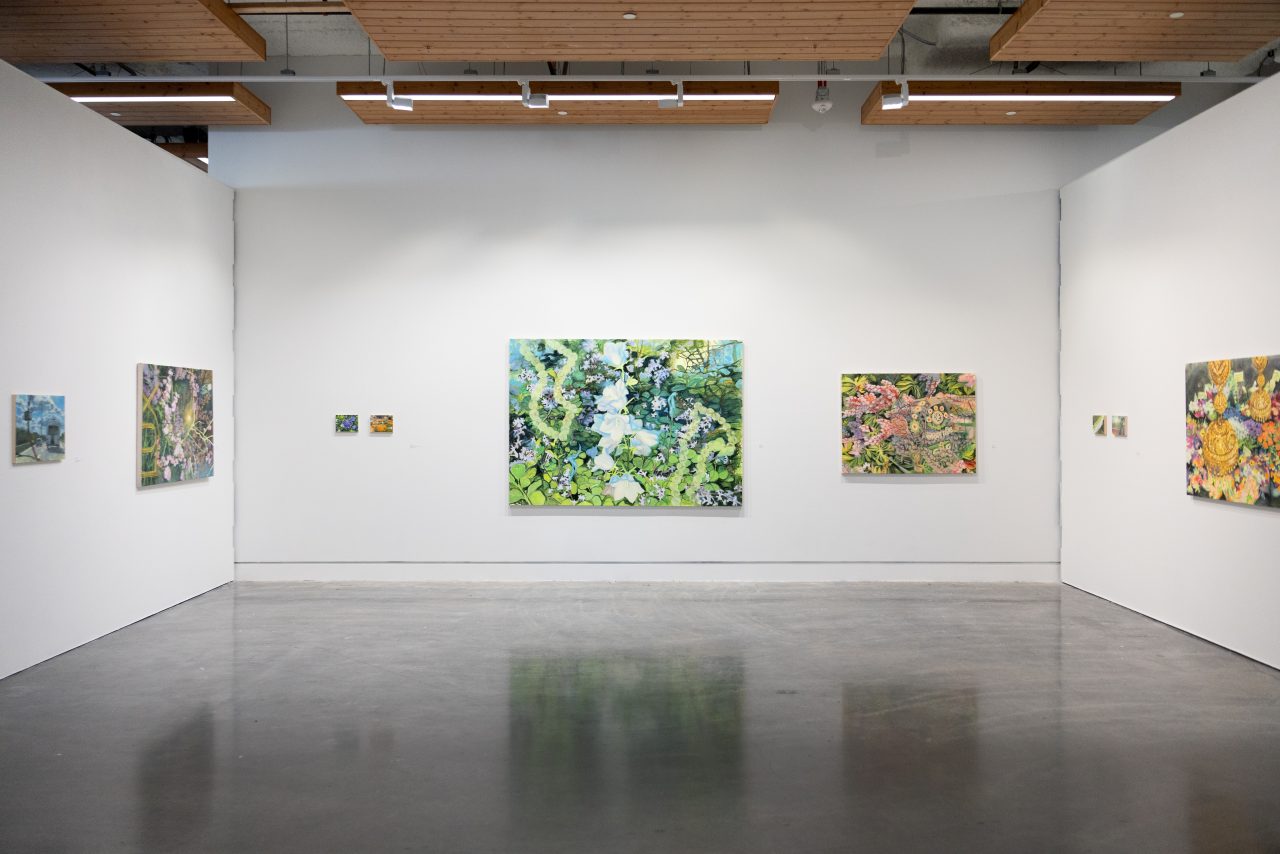
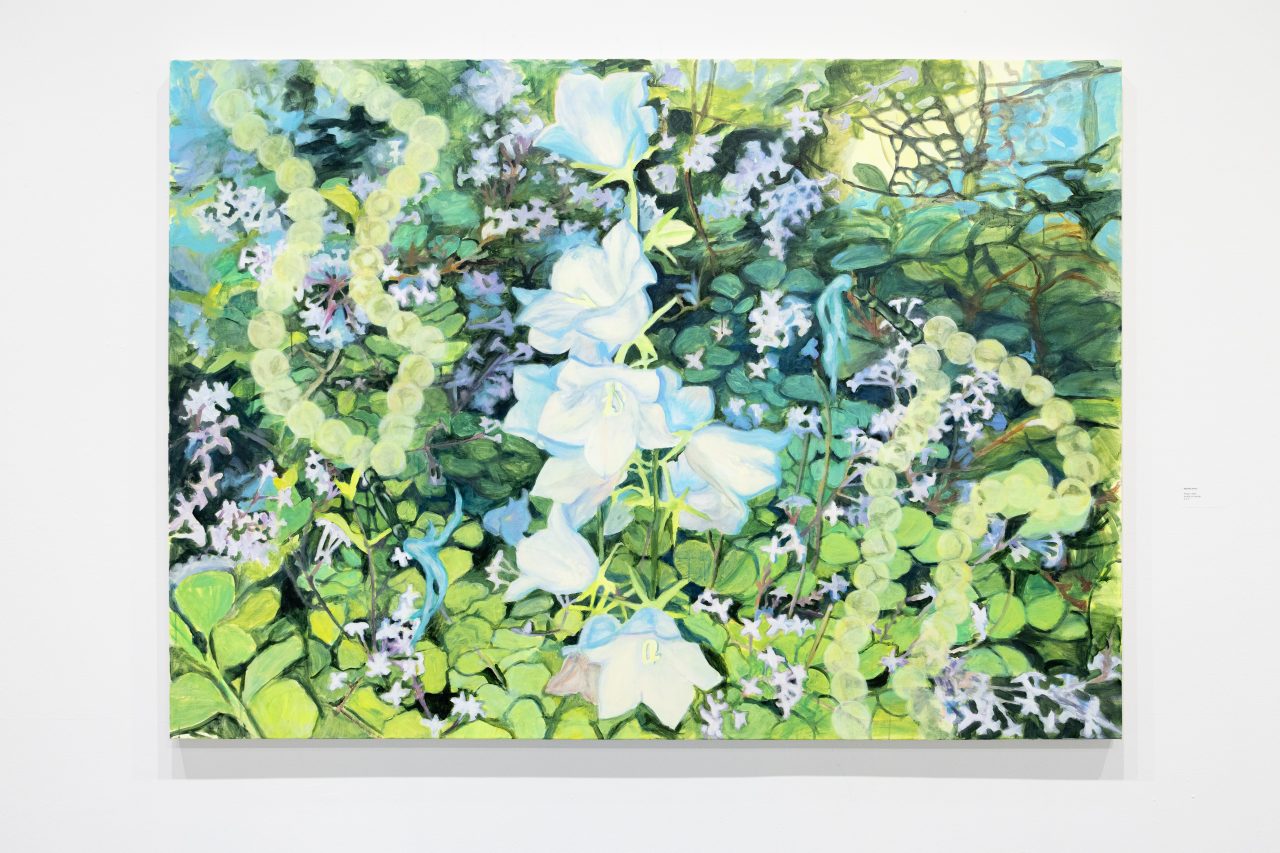
Top: Naimah Amin’s paintings hang in the Michael O'Brian Exhibition Commons in October 2025 as part of the MFA 2026 Full Residency State of Practice exhibition at ECU. (Photo by Perrin Grauer) | Bottom: Naimah Amin, Prayer, 2025. Acrylic on canvas.
The award is the latest in a string of recognitions for Naimah, including a 2025/26 Bourse de maîtrise en recherche FRQSC, a 2025 Mitacs Business Strategy Internship award and a 2024/25 Social Sciences and Humanities Research Council Master’s scholarship.
Naimah was nominated for the Audain Travel Award by ECU faculty member and MFA supervisor Rachelle Sawatsky. They were awarded on the strength of a body of work recently on view in the MFA 2026 Full Residency State of Practice exhibition at ECU.
The lush, colourful paintings are based on smartphone photos of flowers and landscapes overlain with figures, objects or texts. Naimah says these contrasts reflect a project of intentional engagement with their experience of urban environments as well as a desire to create a “speculative space” wherein the world’s transformation can be formulated.
“The act of layering elements onto these clichéd flower paintings speaks to the idea of mediation and its role in image production,” they say. “For me, this is significant because it opens up a space to consider how transformation operates, both within the act of painting and in the ways we perceive the world. Mediation foregrounds the transformative potential of painting, of seeing, and of interpretation itself.”
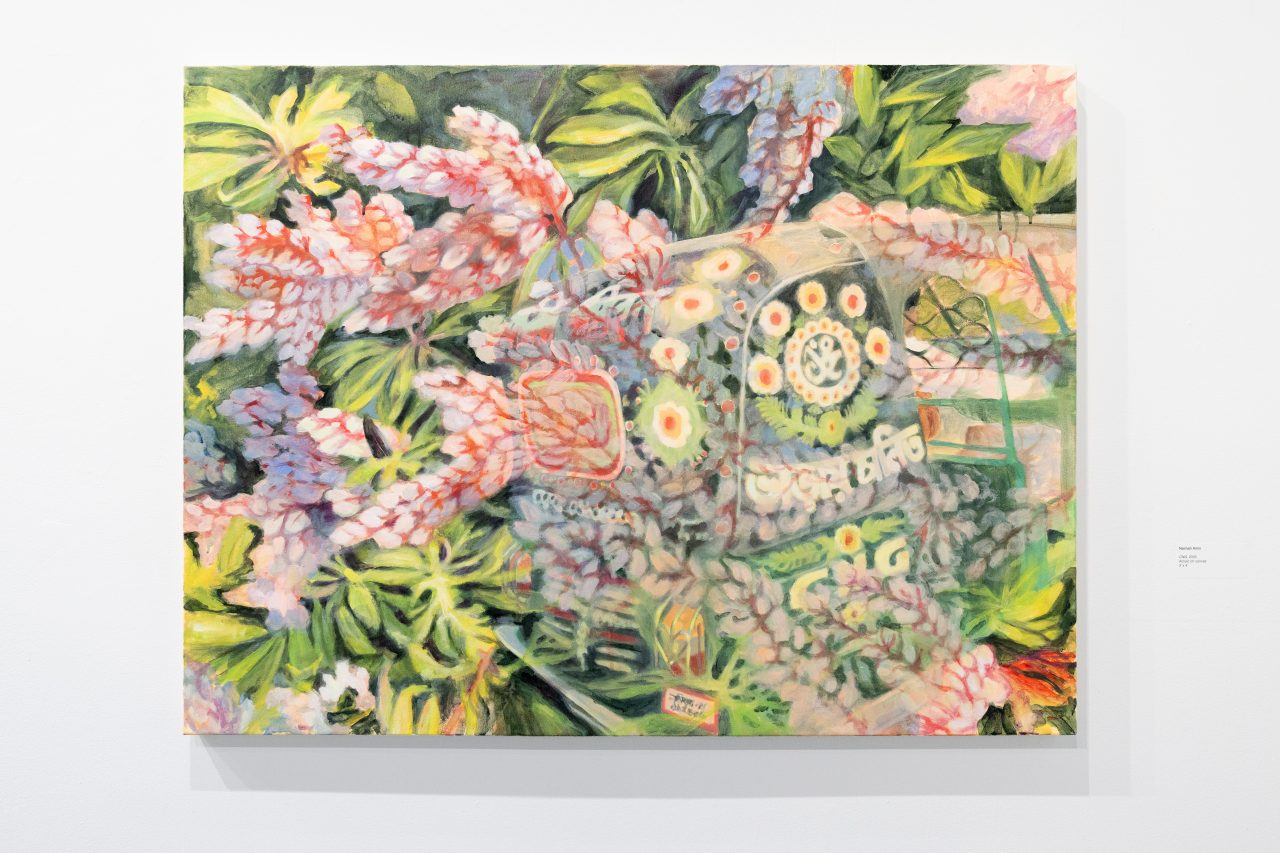
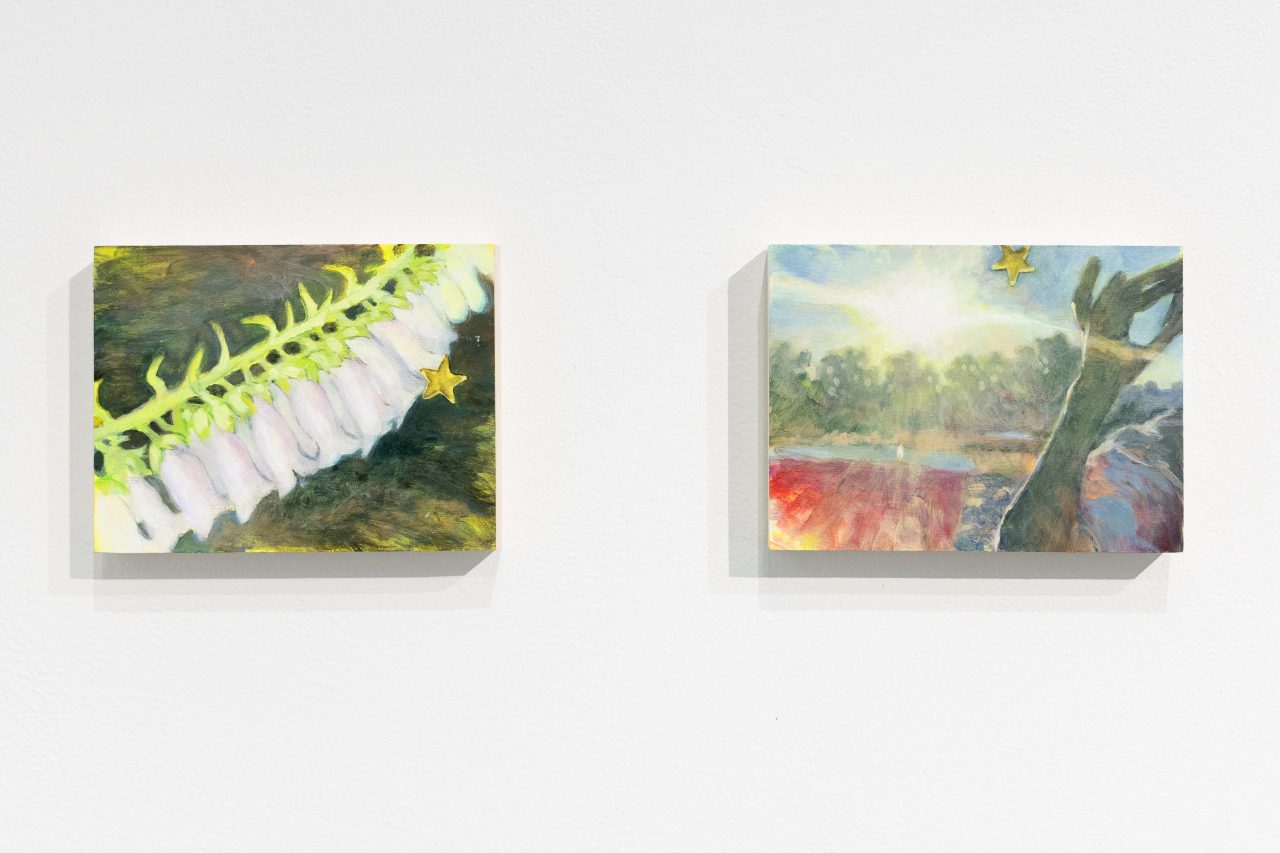
Top: Naimah Amin, CNG, 2025. Acrylic on canvas. | Bottom: Naimah Amin, Gold Star Series, III, 2025. Acrylic on wood panel.
Naimah notes they often grapple with what it means to devote sustained time and attention to painting beautiful things in a city riven by inequities, including class disparity, entrenched poverty and dispossession. They note a flower painting, made unselfconsciously, risks becoming an engine of colonial fantasy capable of negating the lived experience of its viewers.
Yet Naimah also believes in the possibility of such paintings communicating a decolonial vision, even if their own paintings have yet to truly fulfil that promise. They say even the most clichéd subjects might be reenvisioned as sites for generative discourse, if not political thought and action. But such a purpose can only be realized through the steadfast interrogation of one’s practice and intentions.
“Artists are all ciphers of the world. So, we’re taking in the world, filtering it through our skills and concerns. And if we want to draw any sort of attention to that practice, I think we have a duty to be deliberate about what we do,” they say.
“So, I do have to question my work constantly and try to improve and see how my work is in conversation, not just with other artists, but also with the times. I do think our responsibility is to reflect the urgencies of our times, at least in some shape or form.”
Visit Naimah’s website and follow them on Instagram to keep up with their practice.